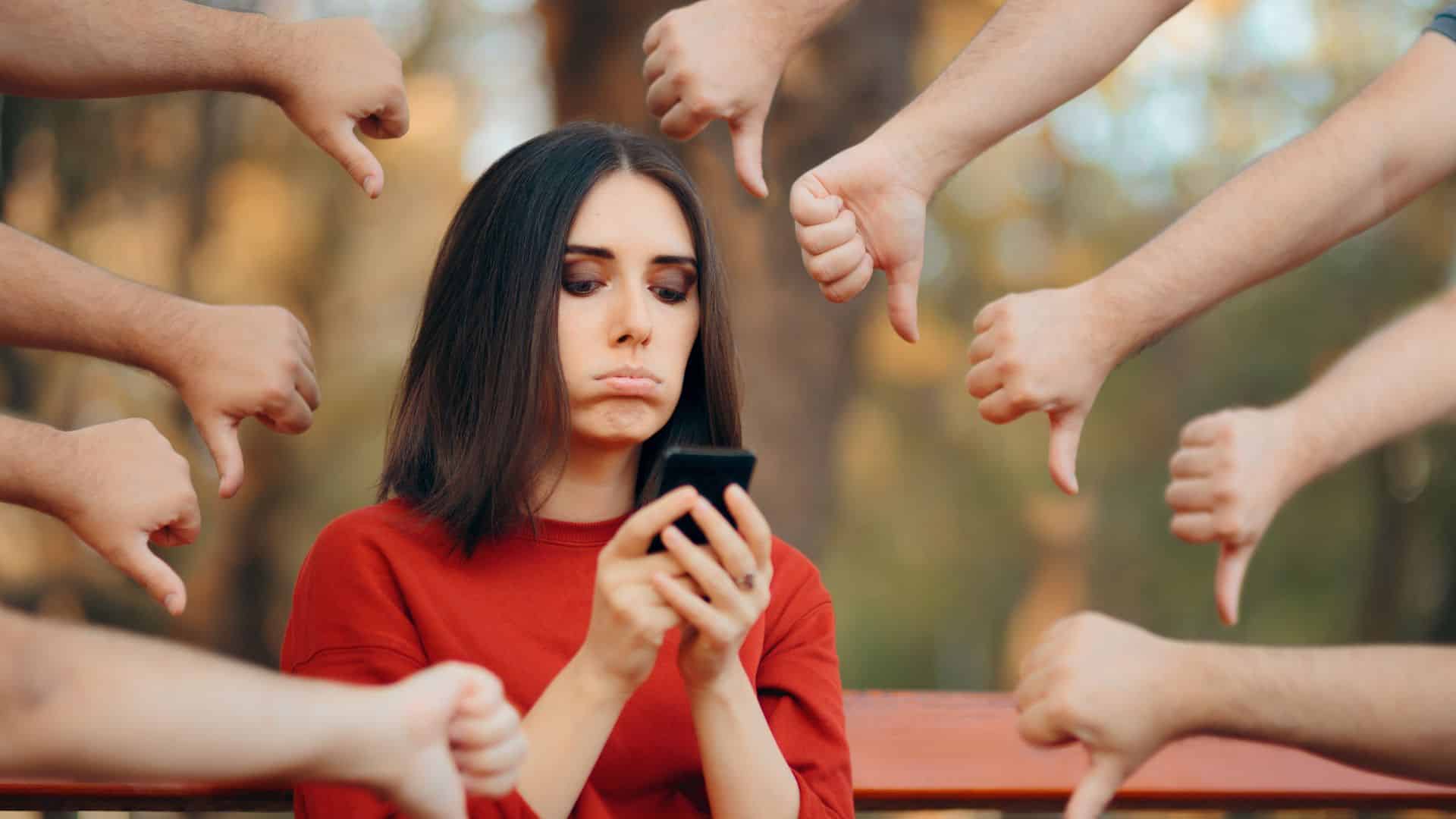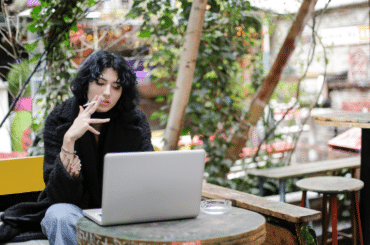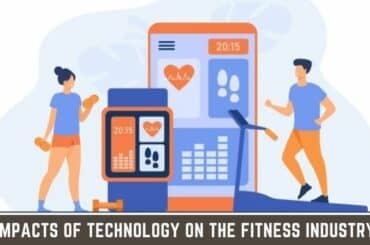In recent years, social media platforms have transformed how we communicate and interact. While these platforms have undoubtedly made it easier to connect with people, they have also significantly impacted our mental health. Numerous studies have explored the link between social media use and mental health, with many finding a correlation between excessive social media use and increased levels of depression, anxiety, and loneliness.
Table of Contents
As we continue integrating social media into our daily lives, we must understand how it affects our mental well-being and what steps we can take to mitigate any negative effects. In this article, we’ll explore the impact of social media on mental health and offer tips for using these platforms to promote positive mental health.
We previously discussed the Pros and Cons of Social Media for Youth and Students.
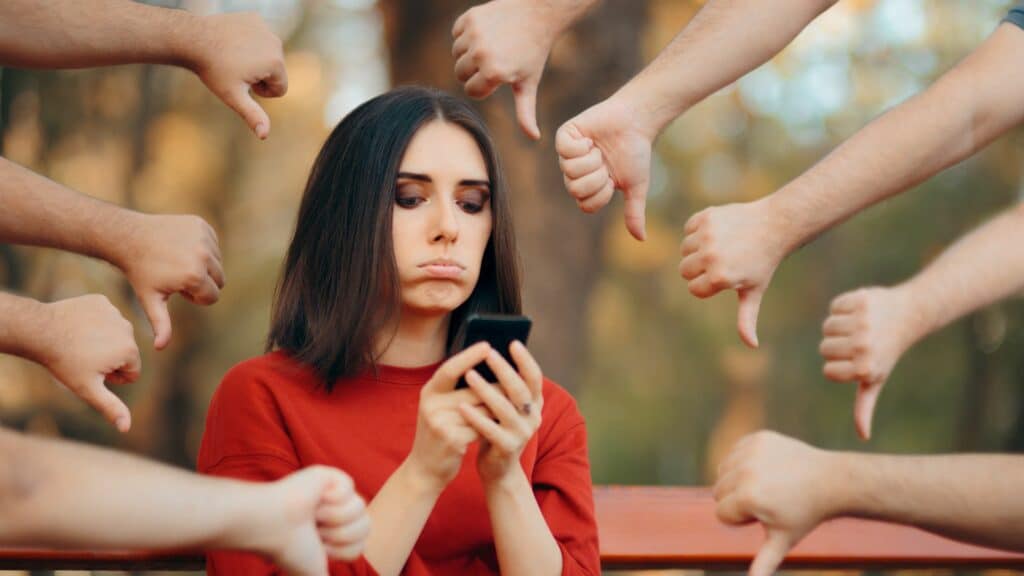
Impact of Social Media on Mental Health
Research has shown a strong correlation between social media use and heightened levels of depression, anxiety, and loneliness. As the field of study surrounding this relatively new Technology continues to expand, additional negative effects are uncovered. In the following sections, we will discuss some of the damaging impacts that social media can have on our mental health.
Social media can cause cyber-ostracism
The desire for social connectedness is a significant driver behind social media usage. The need to establish meaningful relationships with others and the fear of missing out (FOMO) drives us to constantly check for updates from friends and endlessly scroll through timelines.
Social networking sites have become integral to our daily communication, influencing nearly every aspect of our lives. While initial research highlighted the many benefits of these platforms, including their ability to facilitate communication across geographic barriers, recent studies have increasingly shed light on the negative effects of social media. One such effect is “cyber-ostracism,” which causes social isolation online.
Cyber-ostracism without likes and comments
The sense of inviolability is closely linked to our self-esteem, sense of control, sense of belonging, and overall perception of having a meaningful existence. On social media, cyber-ostracism often occurs when we receive no feedback on our posts.
According to a 2018 study by researchers at the University of Illinois, the absence of likes or comments can make us feel ignored and excluded. In particular, receiving little to no engagement on our posts over an extended period can lead to feelings of alienation, depression, powerlessness, and meaninglessness.
Feeling lonely and without friends
Researchers at the University of Mannheim in Germany conducted a study that revealed similar patterns in how users perceive ostracism on social media. For instance, events on platforms like Facebook, Twitter, or Instagram can cause feelings of ostracism if responses or interactions are not immediate. Waiting for someone to respond after viewing a message or waiting for a friend request to be accepted are some examples.
These experiences put individuals in a perpetual state of “standby mode,” according to the researchers. On the internet, where every need is instantly met, even a minute’s delay in responding can plunge a person further into the depths of electronic rejection. As per the study, the same feeling can also arise when someone is unfriended on social media.
Promote Toxic Comparisons
Social comparison has been a part of human behavior for centuries, as individuals have always compared their lifestyles and possessions to those of their neighbors. However, social media has amplified this behavior, providing constant updates about what everyone is doing worldwide. Scrolling through your newsfeed, you may see people achieving one milestone after another, flaunting their latest possessions like cars or expensive accessories. Consequently, you compare yourself to others and end up feeling inadequate.
According to a study published in the Journal of Social and Clinical Psychology, this is one of the many consequences of digital interactions. The researchers explain that social comparison occurs when people automatically compare themselves to others based on abilities or character traits that they consider essential.
Compare yourself with your friends.
Social media platforms like Facebook and Instagram offer ample opportunities for users to compare themselves to their friends and the seemingly perfect celebrities they follow. One can engage in social comparison by comparing the number of likes and comments on their posts to those of their friends.
However, this can be problematic because many people only present their best selves on social media. As a result, when individuals compare themselves to the idealized versions of their friends online, they tend to feel worse about themselves.
Consistently viewing images of an ideal life on social media can also lead to feelings of inadequacy and trigger or worsen negative emotions, resulting in increased daily depressive symptoms, according to the same study.
Continued use of Social Media can negatively affect your body image.
According to several studies, long-term social media use has been linked to body dissatisfaction in both men and women. For instance, a study published in Body Image found that prolonged social media use can raise concerns about body image in young women.
Individuals who spend more time on social media tend to compare their appearance and body to their peers, friends, and even celebrities, often rating themselves lower than others. This is compounded by the widespread use of photo editing apps that create an unrealistic and idealistic body image that many find impossible to achieve or maintain.
Such images can lead to dissatisfaction with one’s body, lower self-esteem, and even eating disorders in some cases. Although body-positive movements have attempted to broaden the definition of beauty, there is still a focus on appearance, which can contribute to negative body image or toxic comparisons to others.
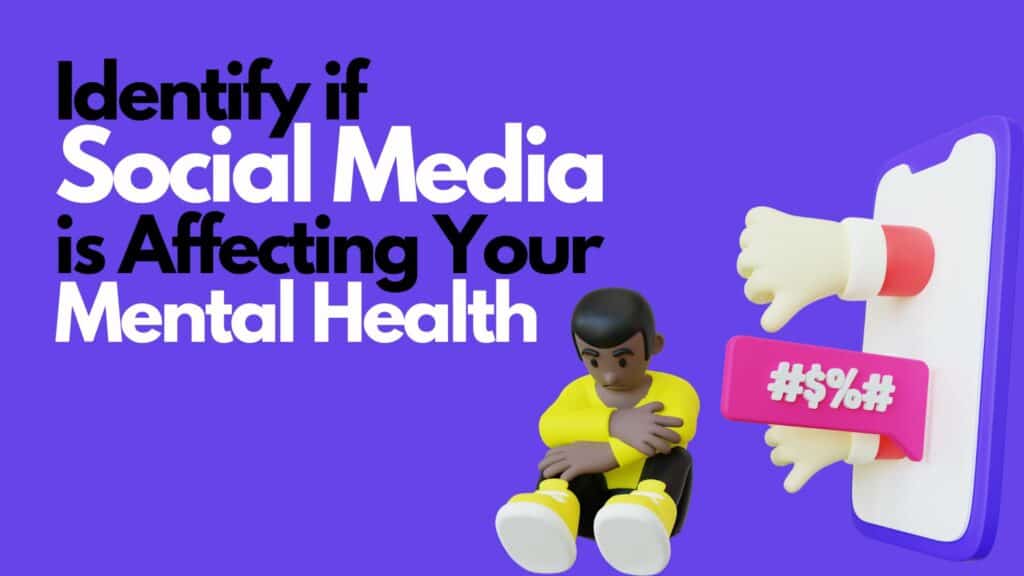
How to Identify if Social Media is Affecting Your Mental Health
Social media has become a ubiquitous part of modern life. People of all ages and backgrounds use social media to connect with friends and family, stay informed about current events, and share their thoughts and experiences. While social media can be a positive tool for communication and self-expression, studies have also shown that prolonged use can negatively affect mental health.
Recognizing the warning signs that social media may impact your mental health is essential. Here are some indicators that your social media use may be becoming problematic:
Neglecting face-to-face relationships
Spending more time on social media than interacting with friends and family in real life could indicate that social media use is becoming unhealthy. Even with friends, you may feel the urge to constantly check your social media accounts, leading to feelings of FOMO (fear of missing out) and insecurity.
Here is an article you might like: How is Social Media Changing Family Relationships
Comparing yourself unfavorably with others
Social media often presents an idealized version of people’s lives. Feeling envious or negatively comparing your life to others on social media can lead to low self-esteem or negative body image. It’s essential to remember that what you see on social media is not always an accurate representation of real life.
Experiencing cyber bullying
If you have experienced cyberbullying or worry that you have no control over what others post about you, it can negatively impact your mental health. Reporting any cyberbullying to the appropriate authorities and protecting yourself online is essential.
Being distracted at school or work
Frequently checking social media during school or work hours can indicate that your social media use is becoming problematic. It can lead to poor productivity and negatively impact your grades or job performance.
You can also read: How Relationships with School Mates could be Influenced by Your Well-Being.
Having no time for self-reflection
Constantly engaging with social media and having no time for self-reflection can harm your mental health. Reflecting on your thoughts and feelings is essential for personal growth and development.
You can also read: How Social Media Could Negatively Impact your Relationship with Parents or Guardians.
Engaging in risky behavior for likes and shares
Find yourself engaging in risky behavior to gain likes, shares, or positive reactions on social media. It can be a sign that your social media use is becoming problematic. This can include playing dangerous pranks, posting embarrassing material, or cyberbullying others.
Suffering from sleep problems
Using social media before bed can disrupt your sleep and negatively impact your mental health. Establishing healthy sleep habits and limiting screen time before bed is essential to ensure adequate rest.
Worsening symptoms of anxiety or depression
Suppose you find that your social media use is making your symptoms of anxiety or depression worse. In that case, taking a break from social media and seeking support from a mental health professional is essential.
In conclusion, social media can positively and negatively affect mental health. By recognizing the warning signs that your social media use may impact your mental health, you can establish healthier habits and improve your overall well-being.
You can also read: What are the Negative Effects of Technology on Health: 10 Keypoints.
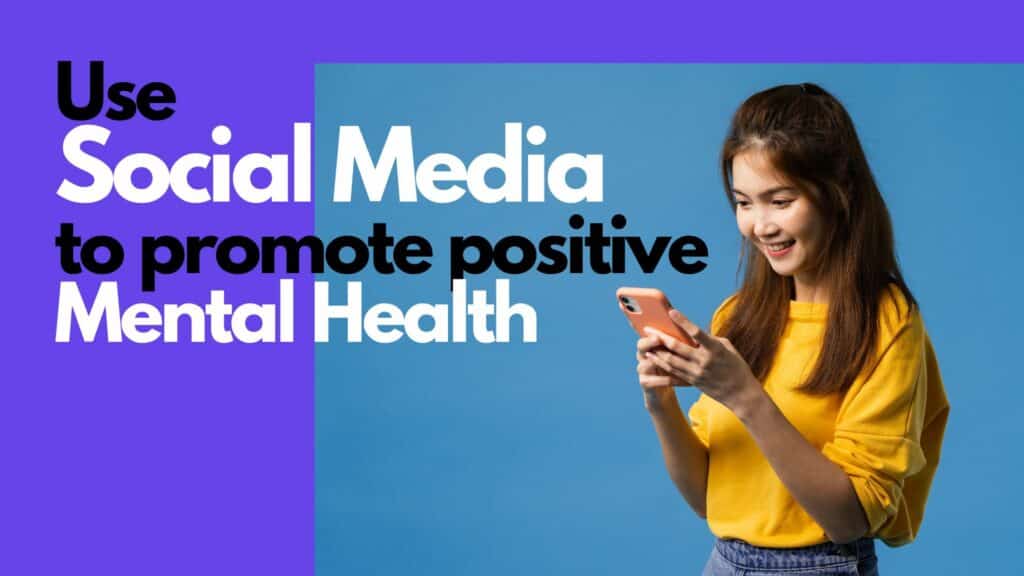
Use Social Media to Promote Positive Mental Health.
Social media has become ubiquitous in modern life, with billions of people using these platforms to connect with others, share information, and consume content. However, excessive use of social media can have a negative impact on mental health, with studies showing a link between social media use and anxiety, depression, and other mental health issues. Nevertheless, social media can also be a powerful tool for promoting positive mental health, and there are several tips that individuals can use to make the most of these platforms while safeguarding their well-being.
Set Boundaries
Setting boundaries is one of the most essential tips for using social media to promote positive mental health. This means limiting your time on social media and being mindful of the types of content you consume.
Studies have shown that excessive social media use can lead to feelings of isolation, anxiety, and depression, so limiting how much time you spend scrolling through your feeds is essential. You might also want to consider limiting the types of content you consume, such as avoiding negative news stories or unfollowing accounts promoting unrealistic beauty standards.
You can also read: 15 Tips to Keep Your Child Away From Mobile Phones
Use Social Media for Positive Connection
Social media can be an excellent tool for staying connected with friends and family, especially during social distancing or isolation. Instead of using social media to compare yourself to others or seek validation, use these platforms to foster positive connections.
Reach out to friends and family members, share positive news stories or funny memes, and use social media to build relationships and feel more connected to others.
Promote Positive Content
Another way to use social media to promote positive mental health is to promote positive content. Share articles, videos, and other content that promotes positivity, hope, and well-being. You might also want to share your experiences and insights, as this can help create a sense of community and support around mental health issues.
Seek Support
If you’re struggling with mental health issues, seeking support from others is essential. Social media can be an excellent tool for finding support and connecting with others who are going through similar experiences.
Several online communities and support groups focus on mental health issues, and these can be an excellent resources for finding support and getting the help you need.

Use Social Media Mindfully
Finally, it’s essential to use social media mindfully. This means being aware of social media’s impact on mental health and protecting yourself from negative influences. This might involve setting limits on your social media use, avoiding negative or triggering content, and being mindful of how you interact with others on these platforms.
In conclusion, social media can be a powerful tool for promoting positive mental health, but using these platforms mindfully and with intention is essential. By setting boundaries, seeking support, promoting positive content, and using social media for positive connections, individuals can use these platforms to foster well-being and support their mental health.
Here is an interesting article for you, How can Technology Impact your Fitness: Do’s and Dont’s.
Download PDF: Impact of Social Media on Mental Health PDF
| Social media use increases depression and loneliness PDF | Download PDF |
| Social media, young people, and mental health PDF | Download PDF |
| Social Media, young people, and mental health PDF | Download PDF |
| Impact of Social Media on Mental Health PDF | Download PDF |

